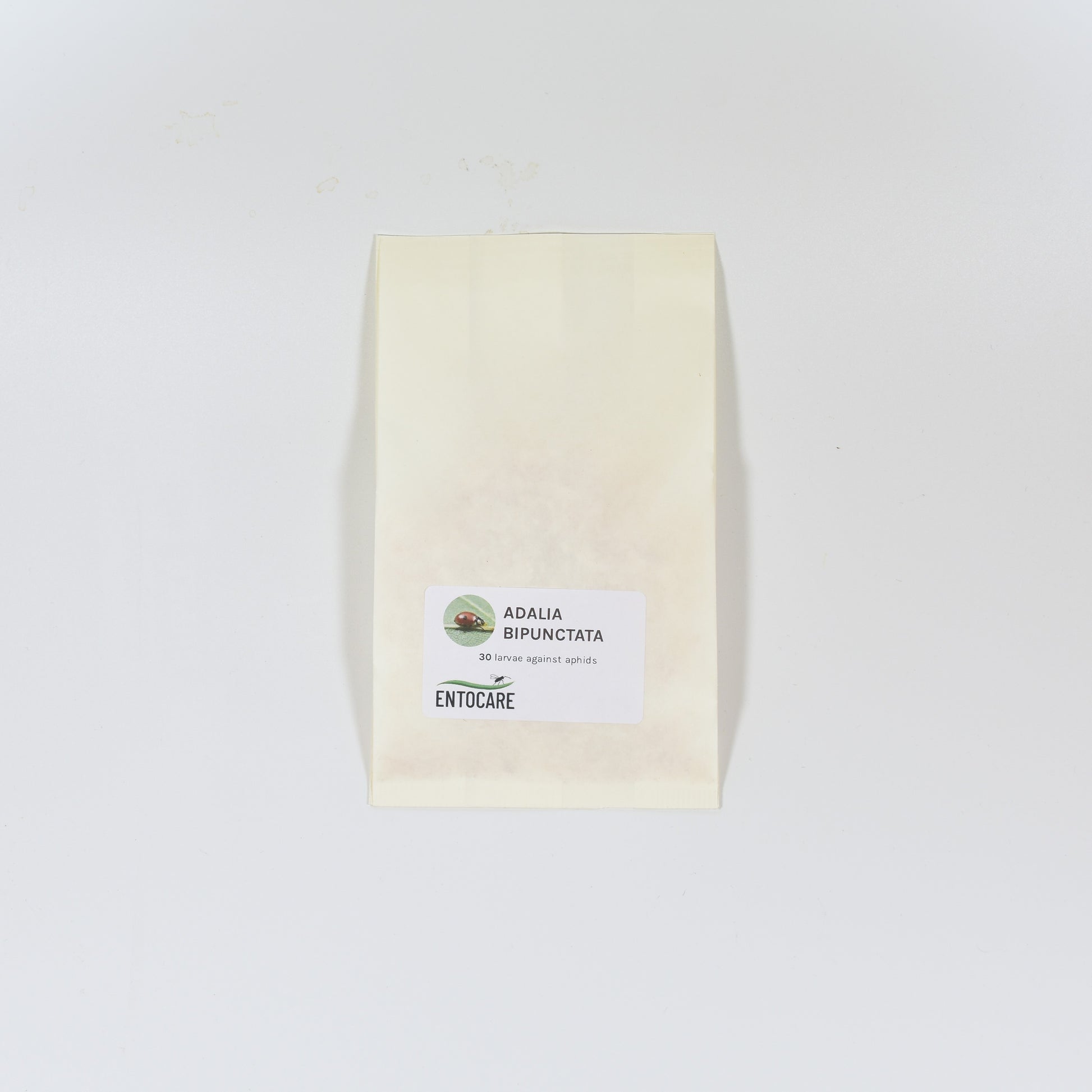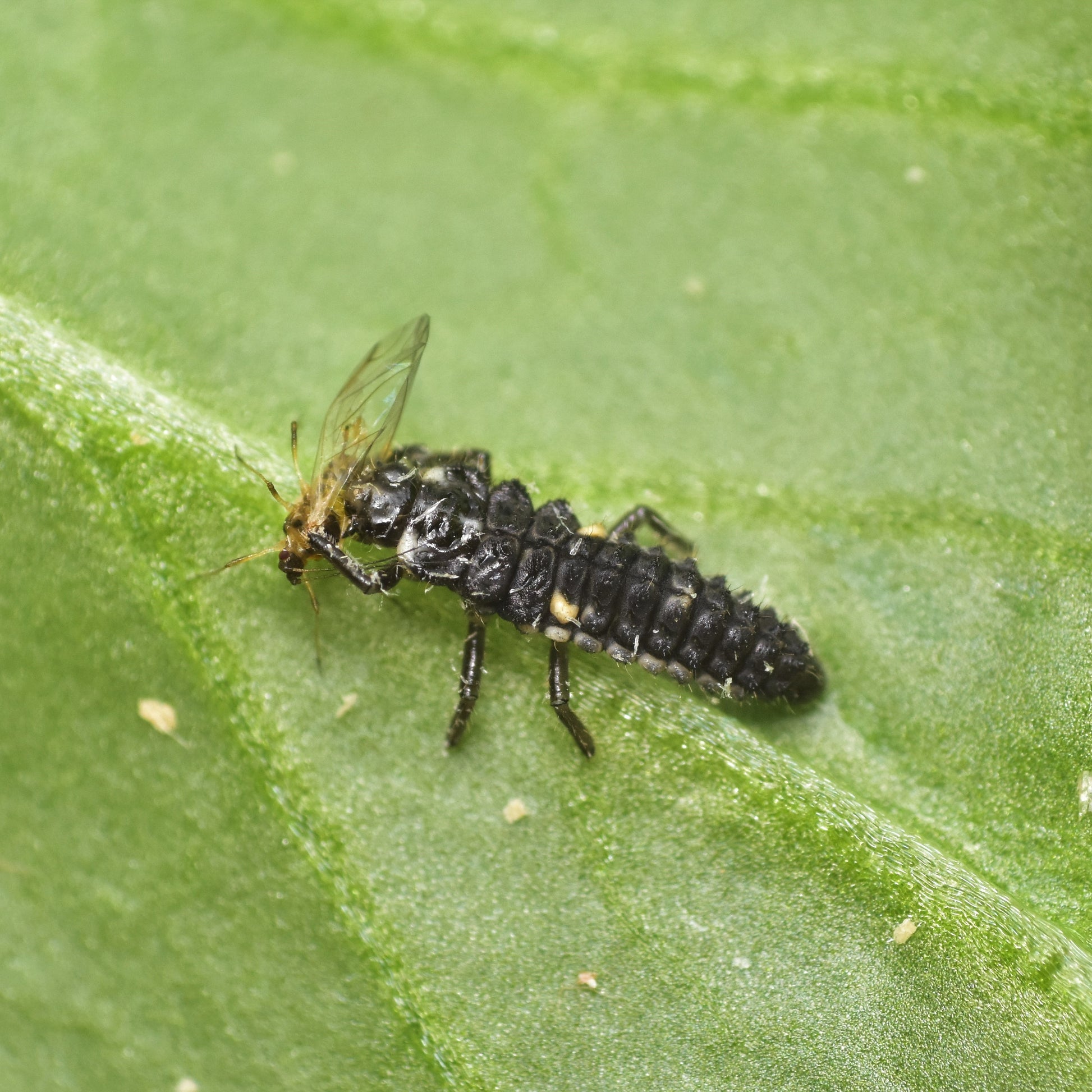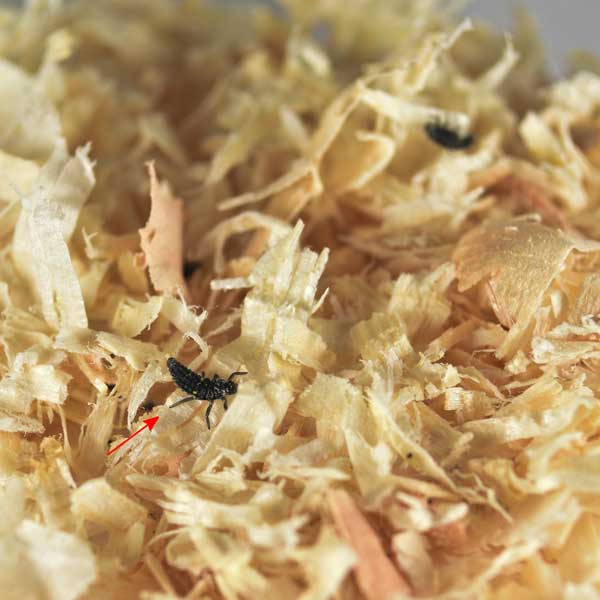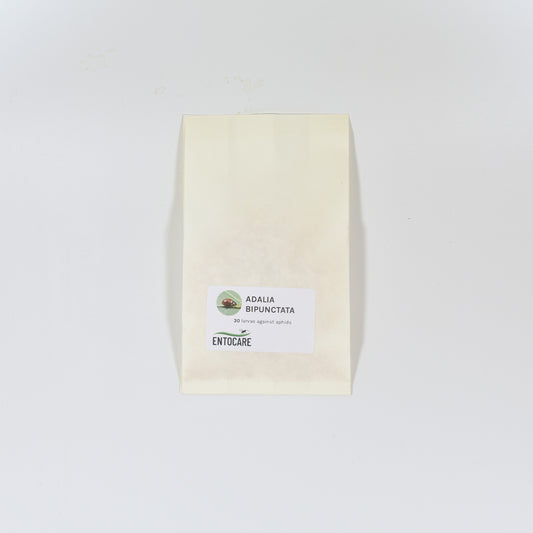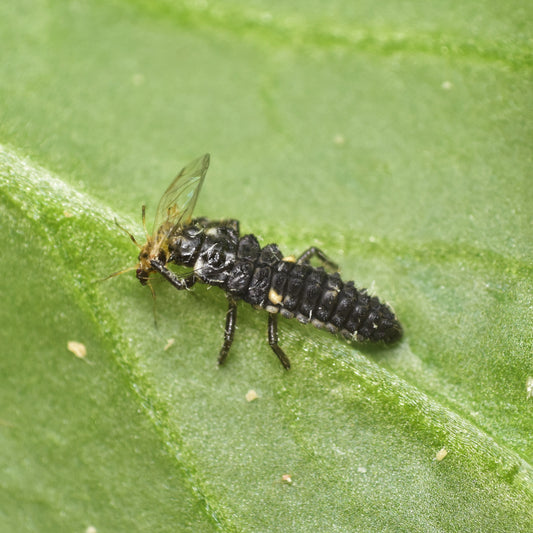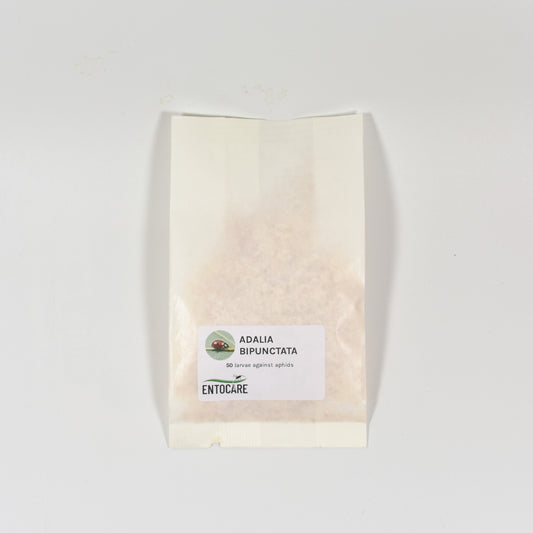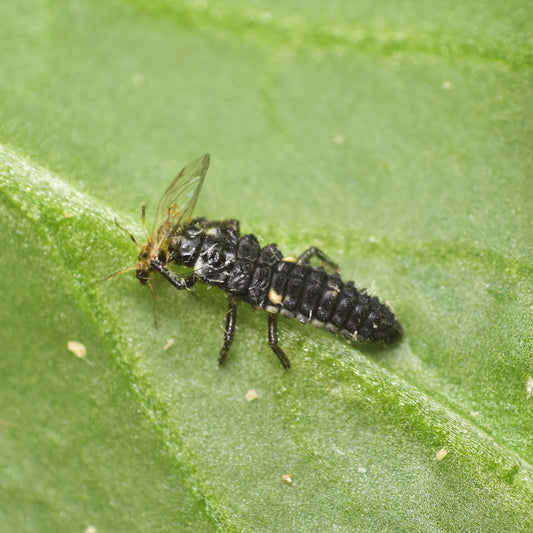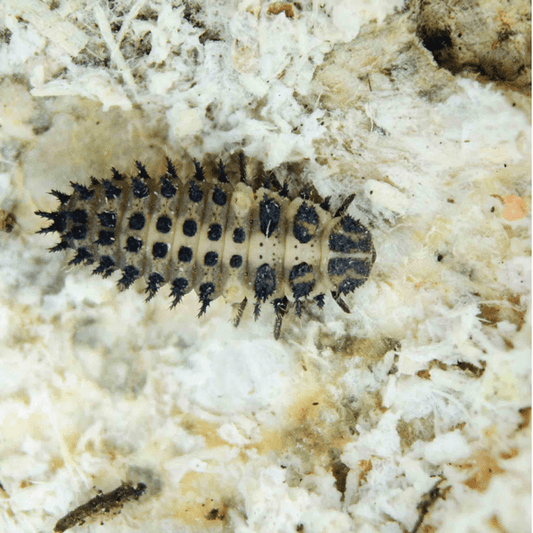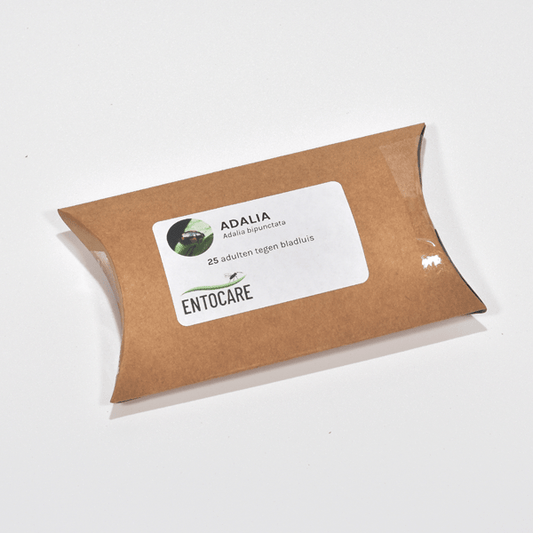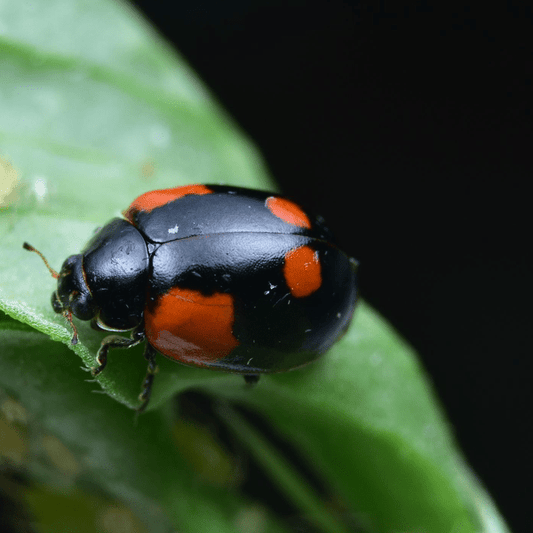Entocare
ADALIA larvae - 30
ADALIA larvae - 30
against aphids
ADALIA BIPUNCTATA larvae are the voracious larvae of the indigenous two-spotted lady beetle. They are effective biological control agents of many aphid species in nearly every situation. ADALIA larvae are available in units of 50, 100 or 250 (business customers only). The larvae are packaged in a biodegradable paper bag with carrier material and food.
Specificaties
Specificaties
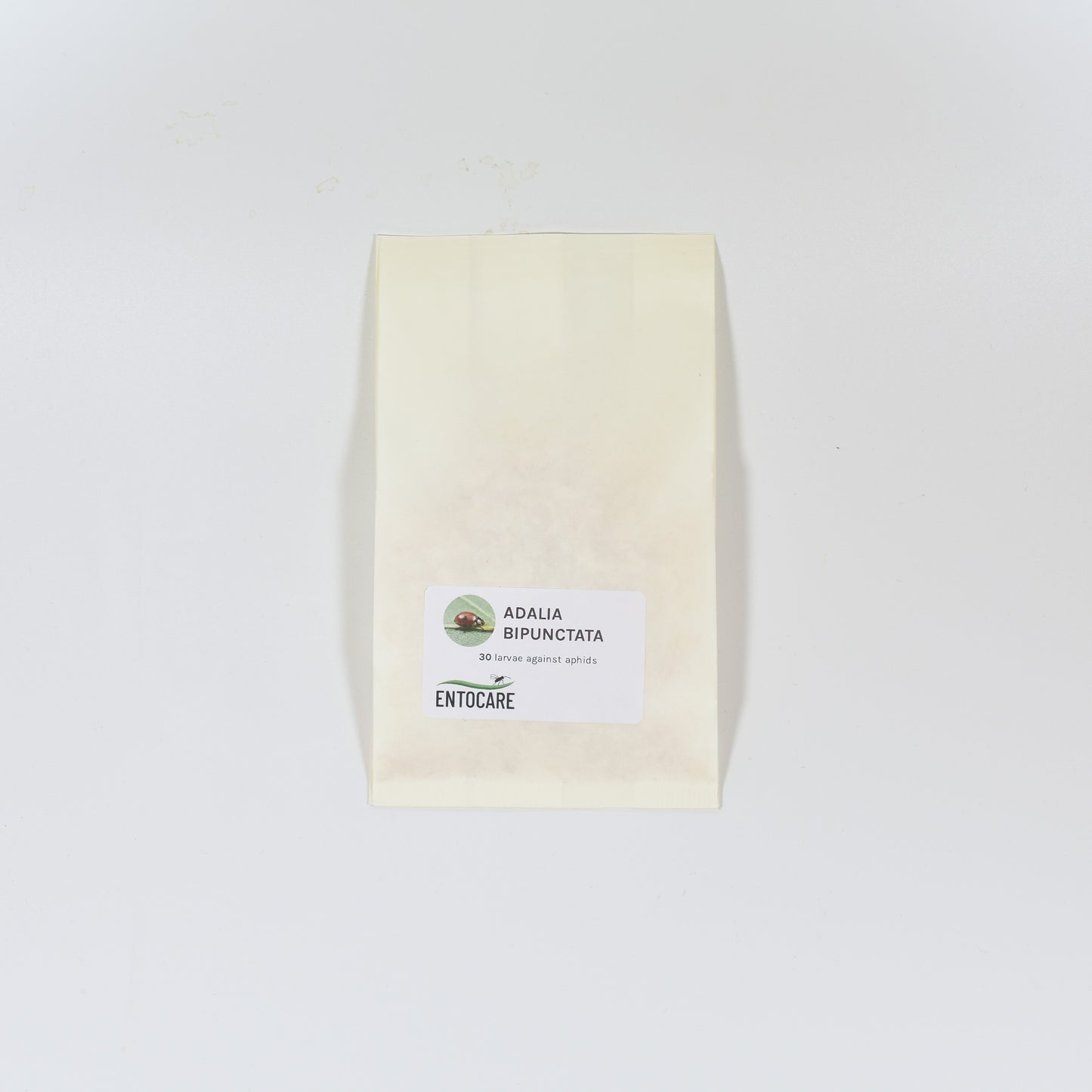
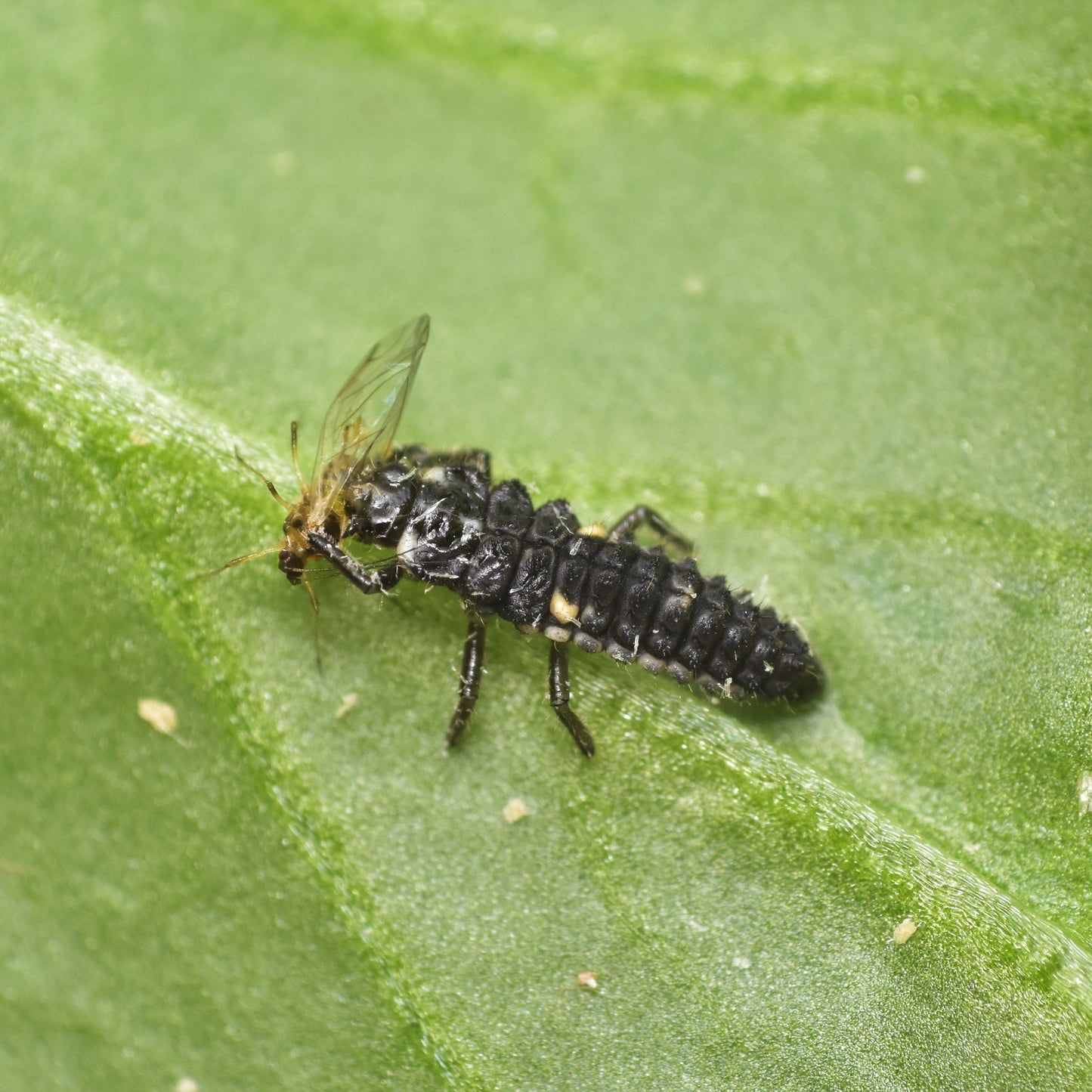
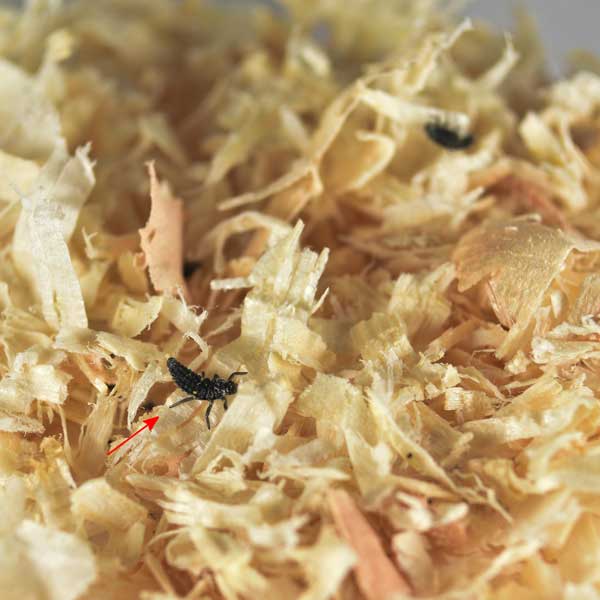
What are ADALIA BIPUNCTATA larvae?
ADALIA BIPUNCTATA larvae are the voracious larvae of the indigenous two-spotted lady beetle Adalia bipunctata. The larvae look very different from the adult beetles: they are grey to black; elongated insects with six long legs with which they swiftly move over the plant.
How do ADALIA BIPUNCTATA larvae work?
The larvae are effective against many diferent aphid species; such as lime aphid; maple aphid; rose aphid; foxglove aphid; potato aphid and green peach aphid.
As soon as the bag is opened and attached to the plant; the larvae exit the bag and start their search for aphids. The larvae require a lot of food for their development: they consume hundreds of aphids. The pest population quickly reduces: you can see an effect after only one week. The larvae molt regularly and their shedded skins remain behind on the plant. These skinds can easily be found: they look like small; black flakes. Be aware: these are not dead larvae!
How to combine ADALIA BIPUNCTATA larvae
In greenhouses and indoor gardens ADALIA larvae match rather good with parasitoids such as APHIPAR and APHISCOUT. The larvae prey upon the hot spots of the pest whereas the specialized parasitoids are far better searchers and will be superior in finding aphids all over the plants.
![]()
- indoors: January - December
- urban trees: May - June/July
- ornamental garden, vegetable garden: April - October
![]()
T = 15 - 28°C
![]()
RV = 50 - 80%
![]()
indoor garden, vegetable production, hobby greenhouse, vegetable garden, public park, ornamental production, ornamental garden
- Use 1 package of 100 larvae per tree.
- Use 1 package of 250 larvae per tree for trees with diameter of trunk > 30 cm
- In ornamental garden: 1 package is sufficient for 1-3 shrubs
- Repeat introduction when damage continues and no larvae are present anymore
- Open the little bag and put it into the plant or tree while using the closing strip. Put it close to aphid hot spots.
- The larvae will move upwards out of the little bag searching for their prey.
- You may also scatter the contents of the little bag over the infested plant(s).
- In between the woodfibers some black coloured remnants of molting skins of the larae may remain.
-
ADALIA larvae - 30
Regular price €10,60 EURRegular priceUnit price / per -
ADALIA larvae - 50
Regular price €20,00 EURRegular priceUnit price / per€20,00 EURSale price €20,00 EUR -
EXOCHOMUS QUADRIPUSTULATUS larvae - 50
Regular price €33,48 EURRegular priceUnit price / per€0,00 EURSale price €33,48 EUR -
ADALIA ladybirds - 25
Regular price €27,25 EURRegular priceUnit price / per€0,00 EURSale price €27,25 EUR

